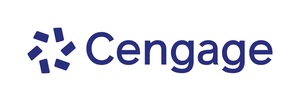BOSTON, Aug. 26, 2019 /PRNewswire/ -- As Women's Equality Day is celebrated across the U.S. commemorating the 19th Amendment to the Constitution, a survey finds a notable gender gap among recent college graduates entering the workforce. The survey, conducted as part of the Cengage Student Opportunity Index, shows that while recent college graduates feel good about their job prospects, women are much less confident than men when it comes to salary expectations. Women are also significantly less optimistic than men about the country's economic outlook, with a majority reporting they feel the country is on the wrong track.
"The cornerstone of the American dream is that everyone deserves an equal and fair opportunity to succeed," said Sharon Loeb, Executive Vice President and Chief Marketing Officer, Cengage. "And yet, the persistent gender gap among recent college graduates in areas such as salary expectations underscores that we have more work to do in order to create a level playing field."
"Women's Equality Day offers an important reminder to workplace leaders that we must be mindful and purposeful in how we attract, train and develop new talent. It also further validates the special responsibility that my female leadership colleagues and I have to champion the growth and development of other women, regardless of industry."
The Cengage Student Opportunity Index measured the opportunity environment for graduates across 17 indicators, using existing public data and a survey of 2,500 recent and upcoming graduates.
Key findings based on gender include:
- Employment Outlook: Women are much less confident than men that they will find a job that meets their salary expectations.
- While an overwhelming majority (93 percent) of near grads felt strongly they would be able to land a new job in their fields within 6 months of graduating, men are slightly more confident at 96 percent in comparison to women at 91 percent.
- When it comes to salary expectations, the gender gap grows significantly, with three-quarters (75 percent) of men feeling confident they will land a job that meets their salary expectations, compared to 62 percent of women.
- One in 5 women are not confident they will be employed at a job that meets their salary expectations within a year.
- Politics and the Economy: Female recent or upcoming graduates are more skeptical about the financial and political outlook of the United States.
- Only 40 percent of women feel the U.S. economic outlook is better now than when they started college, compared to 62 percent of men – a whopping 22-point gender gap.
- Men are more likely to think the country is going in the right direction than women (49 percent to 29 percent). The majority of women (53 percent) feel the country is on the wrong track.
- Debt: While student loan debt is on the rise overall, a greater number of female recent or upcoming graduates report graduating with no debt in comparison to men.
- Women are more likely than men to graduate with no debt (56 percent to 36 percent respectively).
- However, for women who report having student debt, the average amount of debt is slightly higher at $23,656 compared to $22,078 for men.
- Health: Female recent or upcoming graduates report feeling less satisfied with their overall health than their male counterparts.
- Seventy-eight percent of men report being satisfied with their physical health, compared to only 58 percent of women.
- The vast majority (80 percent) of men are satisfied with their mental health, compared to 65 percent of women.
More information about gender discrimination among female students is available in the eBook, "Gender Discrimination in the Classroom and Beyond," available here: https://info.cengage.com/EBOOK-GenderDiscrimination
About Cengage
Cengage is the education and technology company built for learners. As the largest US-based provider of teaching and learning materials for higher education, we offer valuable options at affordable price points. Our industry-leading initiatives include Cengage Unlimited, the first-of-its-kind all-access digital subscription service. We embrace innovation to create learning experiences that build confidence and momentum toward the future students want. Headquartered in Boston, Cengage also serves K-12, library and workforce training markets around the world. Visit us at www.cengage.com or find us on Facebook or Twitter.
About the Index Methodology
The Cengage Student Opportunity Index is calculated based on 17 indicators across four categories: Economic, Employment, Social and Personal Well-Being, with data obtained from both primary and secondary sources.
Primary data was obtained from an online survey conducted by Wakefield Research among 2,500 recent or near college graduates, defined as those who graduated in the past 12 months or who will graduate in the next 12 months. The survey was fielded between January 18 and February 1, 2019. Quotas were set to include 500 students in each of the following majors: business, biological and biomedical sciences, health professions and related programs, humanities and social sciences, and STEM subjects excluding biological and biomedical sciences. The margin of error for this study among the total sample is +/- 2.0 percentage points, calculated at the 95 percent confidence level.
Media Contacts:
Emily Featherston, Cengage
617.757.8035, [email protected]
SOURCE Cengage

Related Links
WANT YOUR COMPANY'S NEWS FEATURED ON PRNEWSWIRE.COM?
Newsrooms &
Influencers
Digital Media
Outlets
Journalists
Opted In






Share this article